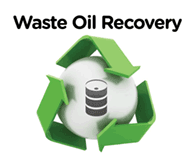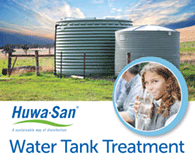In addition, increased research and innovation in farming systems will be required to address this challenge in the years ahead, the report warns.
Releasing the research report, Competitive Challenges – Environmental regulations are changing the rules of the game – Rabobank New Zealand CEO, Ben Russell, said regulation was essential in order to protect the environment, however the report showed it had implications for international competitiveness in agriculture.
He added that increasing environmental regulations were a challenge for agricultural exporters around the world, impacting competitiveness by increasing costs and restraining production growth.
The Rabobank report examines the regulatory approaches taken to protect the environment in New Zealand, California and the Netherlands and the impact on their respective dairy industries.
“For New Zealand – where Regional Councils are at varying stages in the regulatory process relating to water quality under the Resource Management Act’s National Policy Statement for Freshwater Management – the full impact on agricultural production and competitiveness is yet to be quantified,” Russell said. He suggested that environmental regulation affecting agriculture in New Zealand is at an earlier stage compared to California and the Netherlands, and therefore the costs of compliance have yet to be fully built into the local industry’s cost structure.
Russell said more fundamental research and innovation about how to retain and use nutrients within farming systems in cost-effective ways, rather than them leave the system where they become problematic for water quality, was essential for New Zealand to maintain its competitiveness.
“The best possible outcome for New Zealand is the development of farming systems and technologies that allow farmers to continue to increase productivity in a cost-efficient way, while meeting community standards for freshwater quality. This is the “holy grail” that is important, not only to maintain water quality, but also to protect the significant contribution that agriculture makes to the New Zealand economy,” he said.
While the report focusses on the dairy industry, similar challenges existed for farmers across all agricultural sectors in New Zealand, Russell said.
Effects-based approach
Report co-author, Rabobank director of dairy research, New Zealand and Asia, Hayley Moynihan, said for New Zealand, regulators are largely adopting an ‘effects-based’ approach, focused on setting standards or limits on emissions that must be met, but primarily leaving the individual business owner to determine the most efficient or effective way of complying.
Moynihan said the New Zealand approach to environmental regulation brought both challenges and opportunities for local farmers. “The effects-based model being implemented here has disadvantages in that it can create considerable uncertainty for producers, as they are unsure exactly what changes need to be made to meet standards,” she said. “Whereas under the more prescriptive, inputs-based approach, it is simply a case of farmers doing what the rules say they are allowed to do.”
“The great opportunity though is that controlling effects rather than inputs creates incentives for innovation. Farmers in New Zealand have the opportunity to determine the most efficient, cost-effective means of meeting or exceeding requirements, and the most competitive and successful producers will be those who can best adapt to the new regulatory environment. Those who are willing to develop their understanding of environmental issues, innovate and take a whole-of-business approach by progressively incorporating environmental management into their day-to-day farming practices will be the most successful.”
First step
The first important step, the report says, is for farmers to understand the environmental ‘profit and loss’ of each farm.
“Farmers who need to reduce their nutrient-leaching levels to comply with the future regulations need to understand their position sooner rather than later, and make long term plans on how to achieve compliance,” she said. “The particular farming system changes, if any, a farmer adopts will depend on their individual circumstances. Factors such as farm location, soil type, financial situation, management capability and individual preference will all play a role in influencing that choice.”
Moynihan added, “An obvious challenge for many farmers is that specific regulatory requirements in many regions remained uncertain as Regional Councils undertake consultation and planning according to different timetables. However it is likely that limits on nutrient leaching will in time be a fact of life in most regions, and certainly by 2025.”
Increased investment in science and innovation
In order to take advantage of the flexibility New Zealand’s regulatory approach provides though, Rabobank’s report says, investment must be made in building knowledge, science and new technologies to drive the required innovation.
Russell said for the good of the entire economy, additional innovation would also be crucial in ensuring the New Zealand dairy industry was able to continue to grow, while achieving these environmental targets. “The New Zealand agricultural industry, including Dairy New Zealand and Federated Farmers, is putting a lot of resources into addressing environmental requirements in a proactive way, but it is a big challenge and it’s going to take a lot of investment in science and research to find the best long-term solutions,” he said. “More research is also needed to ensure that the measures and tools used in the regulatory process, such as ‘Overseer’, are as accurate as possible.”
Russell said Rabobank saw its role as working with clients to understand their current status, and “where farmers were unsure about how to meet current or future environmental regulations, to assist with both knowledge and finance solutions to help them make the transition to financial and environmental sustainability”.
Break-out box:
The task of increasing agricultural production in an environmentally-sustainable manner in order to achieve food security for the growing world population was identified as one of the key challenges for the future of farming at the first Rabobank Global Farmers Master Class in 2012, outlined in the book The Future of Farming.
Rabobank’s report Competitive Challenges – Environmental regulations are changing the rules of the game is the second in a series of keynote research report being released in 2014 to assist New Zealand clients address competitive challenges to their agricultural businesses. The first, Agriculture in Focus 2014: Competitive Challenges, was released in April.



 Classifieds
Classifieds



